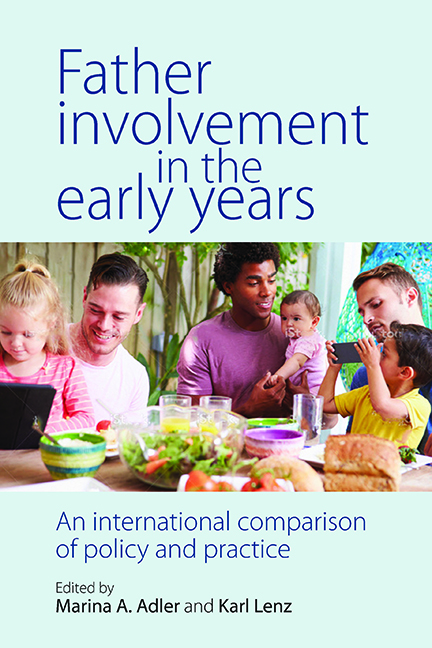Four - Slovenia
Published online by Cambridge University Press: 01 September 2022
Summary
The cultural and policy context of fatherhood
Slovenia was part of the former Socialist Federative Republic of Yugoslavia until 1991, when it became an independent state. Yugoslavia was not a typical socialist country in terms of political regime, economic development or social conditions. It developed its own policies and allowed the federal republics to modify them. Slovenia began using Sweden as a model for parental leave and early childhood education and care (ECEC) policies in the 1970s and 1980s (Korintus and Stropnik, 2009). As a consequence, in Slovenia, it was possible to transfer the mother's right to childcare leave (now called parental leave) to the father as early as 1975. A family leave act was adopted in the same year (1974) that Sweden, the first country in the world, introduced paid parental leave to fathers. Unlike other former socialist countries, such as Hungary, Poland and the Czech Republic, Slovenia not only managed to preserve most of its achievements in the area of family and ECEC policies during the post-socialist period, but also continued to improve them. Over the last two decades, public spending on family and children has been between 1.7% and 2.2% of gross domestic product (GDP) (Jacović, 2012), which is lower than the 2009 Organisation for Economic Co-operation and Development (OECD) average of 2.6% (OECD Family Database). However, family benefits (cash transfers, spending on services and tax savings) are well-targeted and efficient in Slovenia. These effective policies have resulted in one of the lowest relative child poverty rates (UNICEF, 2012).
During the socialist era, the Slovenian state granted women and men legal equality, provided women with reproductive and social rights, and offered social services that enabled women to fully participate in the labour market (Jalušič, 1999). Women's full-time employment, a well-developed system of public ECEC and generous maternity and parental leave and benefits were the main factors fostering a dual-earner model in Slovenia. In the private sphere, however, the division of care work remained quite traditional and gendered. Women performed most of the childcare and routine household labour, while men were mainly engaged in repair and maintenance work. With respect to childcare, men were involved in the more pleasant tasks, such as walking and playing with children (Boh, 1966; Ule, 1977).
- Type
- Chapter
- Information
- Father Involvement in the Early YearsAn International Comparison of Policy and Practice, pp. 127 - 156Publisher: Bristol University PressPrint publication year: 2015



